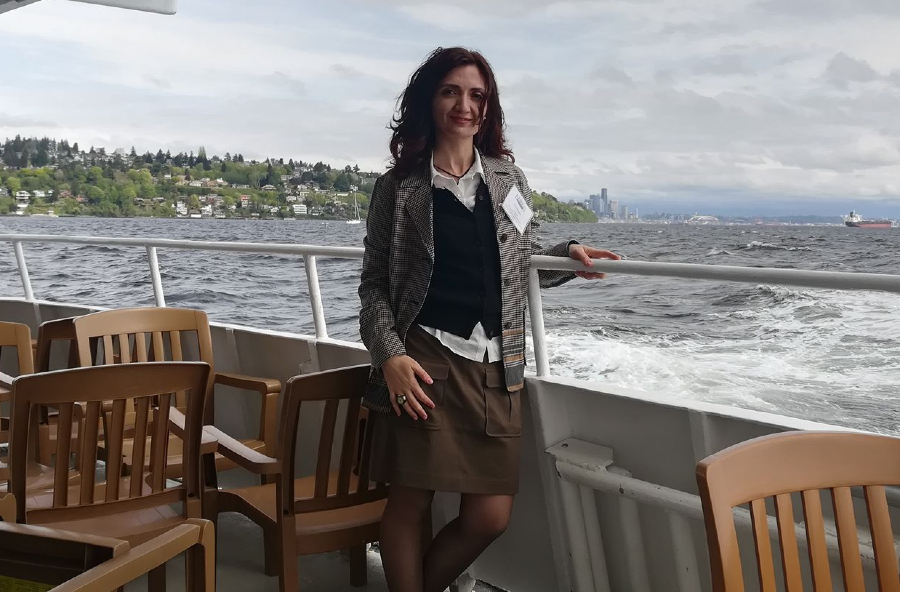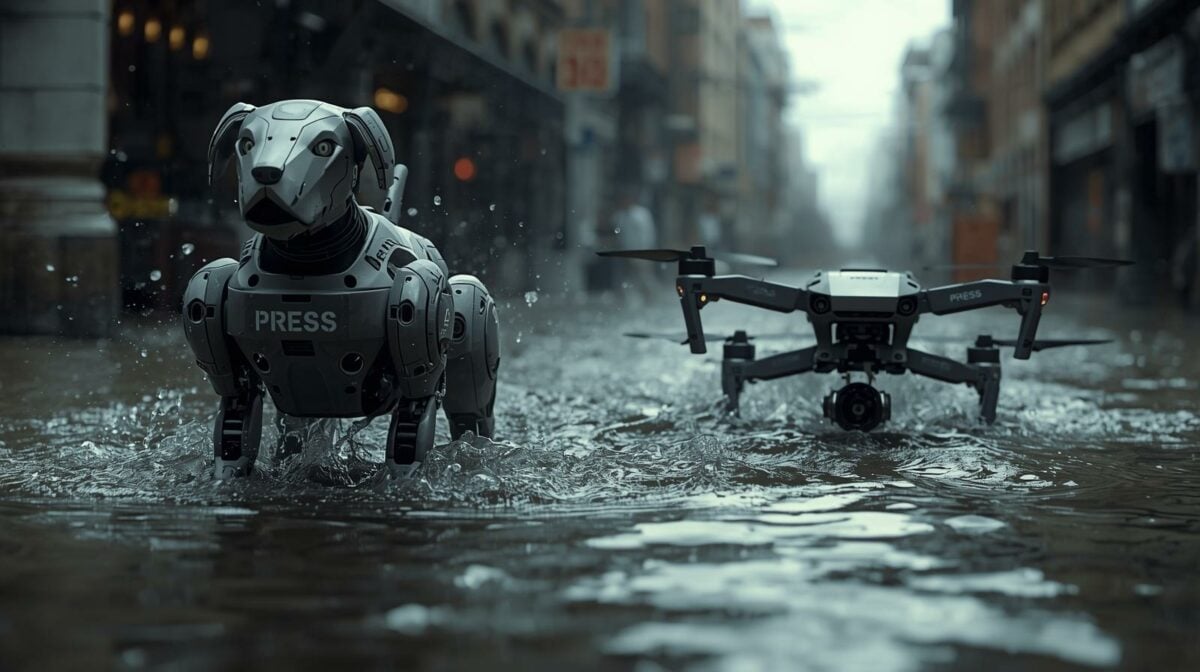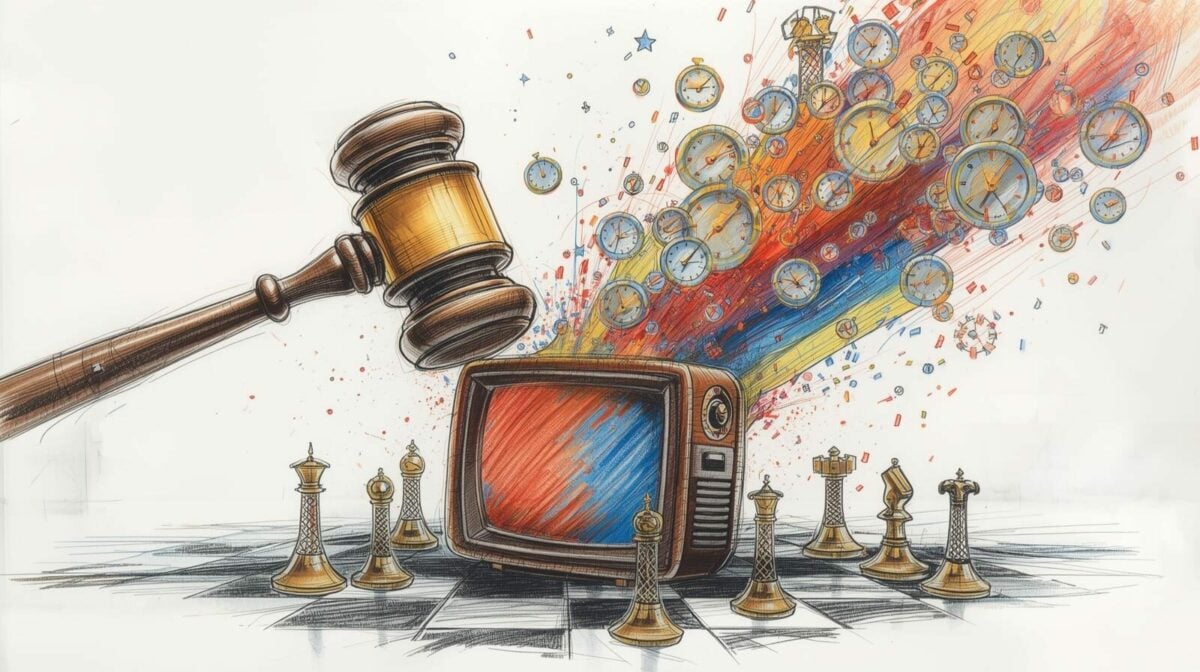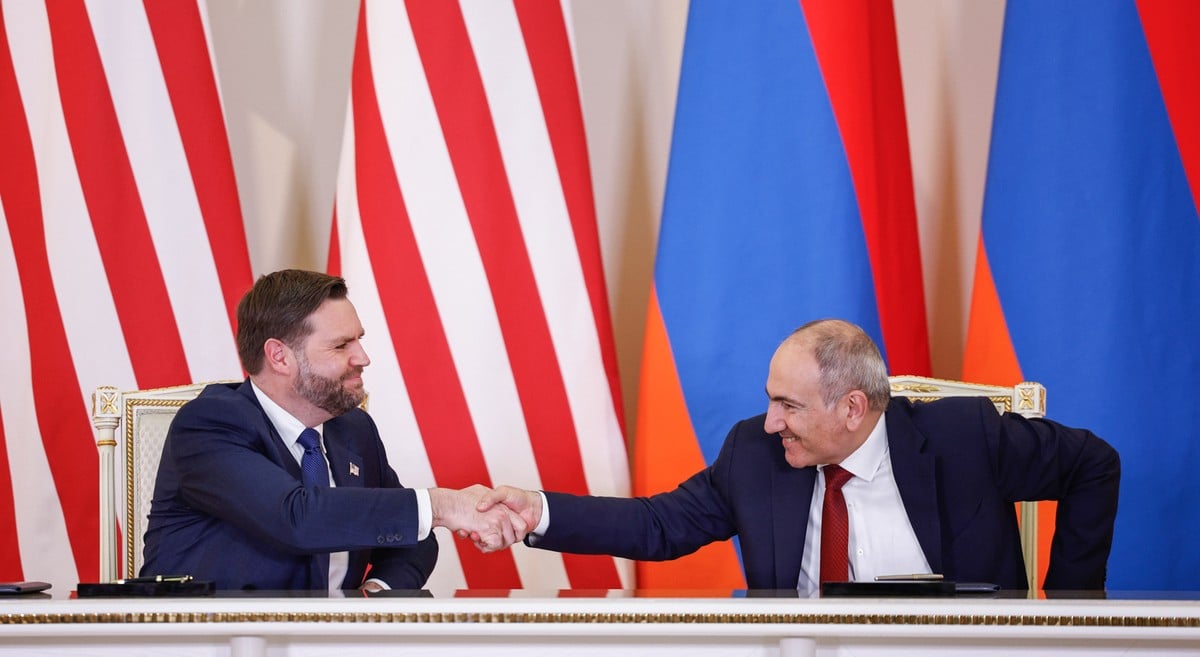Psychologist Sona Manusyan attributes the reactions of Armenians to the war in Ukraine with two main factors. One is our fresh wound, the experience of our own war, which pushes us to express compassion, to be angry, to compare, to come to conclusions, and also to reject compassion.
And the second is the media schemes imposed on us, the frames of our public steps, and even our emotions.
“We never just respond to such topics, we respond through the media,” she said. We take steps of virtual solidarity with hashtags, flags, calls, in the hope that our gestures and hashtags are needed. That we are not cold-hearted, that we empathize, that we exist.
Social networks, especially Facebook, are our big and passionate chat, our park bench. What behavior and maybe traps do you see in the Armenian portion of social media when speaking about the Russian-Ukrainian war?
No matter how different this war may be, or that it is a war between others, it’s the same, many will react to it from their own position, and in addition to general human compassion and fear, they will express their own concerns and mourn their grief. Let me give you a specific example, just as we involuntarily experience our own grief at someone’s funeral.
To be more general, it seems to me that the reactions to the Ukrainian war are influenced by at least two factors, which make our reactions problematic.
One is that people have the impression that they spontaneously react to the war, because the war is terrible everywhere, because it is connected with us, they are countries we know, and so on.
But it is just an illusion, because our reactions are very mediated by the media.
Of course, anything is mediated by the media, but in this case, it is very strongly expressed. Even the Karabakh war did not have such a clear media for us as this war.
From the beginning, there were ready-made media schemes and frames for the expression of the Russian-Ukrainian war. The media is working in a much more consolidated way, creating very specific image series and narratives (they think also about future narratives).
I am talking more about the Western media, which, as a more reliable, balanced source, relies on the part of our society that rejects the Russian propaganda media.
In fact, I have never seen such cohesive, intense, and directed media work, which in many cases, ignores its own principles.
The image of individual media seems to have been pushed to the background, everyone has the same mission.
The images of the victim and the aggressor are very clear for 90% of the world. The sanctions against the aggressor are increasing, the words encouraging the victim are also increasing. The media provides it.
One of the biggest illusions of modern man is the idea, nourished by the media, that we live in an interconnected and communicative world. And that any step taken in one corner of the world echoes in the other.
Therefore, we can and even must respond, try to influence this or that event in the world.
Of course, this general idea is true, but a person realizes all that interconnectedness to such an extent that today they have become a consumer of bad news.
They give them a lot of information and also misinformation, a huge flow of images. And they, in turn, only react, not being able to influence reality in any way, but having the demand to act, the illusion of it.
As a result, the modern-day person responds to war in a manner similar to that of a primitive person who practiced magic to bring rain.
It is basically the same mystical thinking. When you say rain, come and believe that it will rain.
And when we put hashtags, add a flag image to our photos, and say “No to war,” the archaic elements of magical thinking awaken in us. And I say this without metaphor.
People think that with their words, their gestures, their movements they influence something that is not really under their control.
It probably has a compensatory function for us, after all, a person knows what a horror war is, has emotions, and cannot but respond to the war. This is understandable.
What worries me more here is that the media puts even the emotions we have to live in a concrete, already polished frame.
In other words, it becomes important not only what we should know and what words we should say about the war, but also what we should feel and not even feel.
How is it expressed in media framing?
The problem is that in such a media environment I cannot simply express solidarity with the people of Ukraine.
When I put a hashtag or post the image of a flag, I express solidarity with the whole frame that follows it.
So I’m in favor of defeating Russia, that the United States is right, that the Ukrainians are a heroic nation, that NATO-Russia problems can be solved at the expense of Ukrainian lives and territory, that Zelensky is a hero, that Russian scientists and Paralympic athletes should be expelled, and so on and so forth.
That is, you have to agree to that whole package.
This framing is carried out with very intensive and even delicate media work, it becomes a norm for many.
Everything is touching and convincing, those who are not touched by the given form and materials can even be morally reprimanded, as cold-hearted, pro-Russian or, say, insufficiently humanitarian.
See what kind of image is formed from Zelensky. Many international media even choose the photos in such a way as to exalt and glorify him. It was like that at least a few days ago. Images are an important part of this framing.
And sometimes it is really difficult to express solidarity with steps on social networks – hashtags, flags, appeals, if you do not agree with that package.
It is also difficult to find your own way outside of that – to express your solidarity, your pain. It is not by chance that many are silent.
It is natural that Putin is presenting himself in a monstrous way now (I even believe that he will use nuclear weapons), but there is also a policy that leads to that.
We do not understand much, we do not know, but whatever we understand, it must definitely keep us from confident judgments. But people have the illusion that they can withdraw from all this complexity and political and military gambling and simply say no to war in a way that makes sense.
And why do we not react in this way to many other wars?
I suppose because its media framework is not given to us.
The media keeps people from reacting as often as it motivates them. We are not always offered “templates.”
I know Armenian people who positioned themselves as pacifists and remained silent during the whole Karabakh war. To be silent as an active step, as a resistance to the militaristic reality, which I understand. But now those same people during the days of this war do all the rituals on the social network – flags, hashtags, and so on.
I would like them to ask why they were silent there and talking here. Maybe because there was no ready western frame with which they could react, there were no eyes to look at.
And when they say that war is a war, what does it matter where it is, and they believe that they separate politics from the human response, I consider it another illusion. Those who say that are still included in that media frame.
And they become emotional units for the agendas behind them.
The second factor that influences our reactions is the war we lived through, the fresh wound.
People feel pressured, annoyed, offended, and say with a slightly nihilistic attitude, where in the world were you when we were attacked and bombed? How can we empathize when Ukraine and Azerbaijan are allies and it was to our detriment and so on?
There is a kind of insult, anger, resentment, which is psychologically understandable to me, I do not blame people for such reactions. But, of course, such reactions show our naïve ideas about politics and wars.
There are also people who, because of our war, empathize more with the Ukrainians, because they saw and felt the horror. I mean purely human reactions to loss, victims, suffering.
In human emotions, these two wars are intertwined in the mind, despite the significant differences.
And that is the reason why they express themselves either with nihilism or with emphasized empathy. But the place is the same – one’s own war.
I think that looking at the current war from the war we lived in helps as much as it hinders. These wars are not like that, although of course they are interconnected, they are parts of a big political mosaic. Moreover, it is possible that parts of different colors are far from each other.
We are very dependent on Russian news. Almost all Russian propaganda channels have been available for years. Has it left its mark on our perceptions?
It has, for sure. But I wouldn’t want us to generalize with “we.” Nevertheless, there are different layers in Armenia, and I am not sure that the pro-Russian image prevails in Armenia today.
It seems to me that people in Armenia prefer not to take an emphasized side, mainly pro-Ukrainian.
I think there is also a factor of fear, a feeling of uncertainty, insecurity. And at least after the Artsakh war, a large number of pro-Russian people, who were simply attacking when they suddenly saw any criticism of Russia, have now retreated.
Of course, it would be good to have public opinion polls on this issue, but I think pro-Russian sentiment has declined quite seriously, even before the Ukrainian war.
And I am not sure that the most popular group now is the supporters of the Russian side, they just make more noise.
Not only is the disappointment great, but also rage and anger towards Russia (they abandoned us, betrayed us, etc.).
Now, when Russia is sinking into severe sanctions, excitement has awakened in Armenia that we can become a crossroads and a bridge between the West and Russia (businesses will come to us, people will come to us, to develop, to breathe). It seems that a path to the future has been opened. Special channels and groups are being created on social networks in the hopes of that path.
It is a bit surprising, although professionally understood, that people in this extremely difficult situation, when every next step is unpredictable, or predictable only with bad dynamics, can see those paths, make optimistic predictions, even in small issues.
People in Armenia need to assert themselves emotionally, to see the future.
But I would like us not to get too excited in order to leave the field of our naïve ideas. It is not clear that this situation will turn in our favor, there are new risks.
I would advise people to endure uncertainty for a while, not to seek certainty. Tolerate uncertainty.
That ability must be developed, otherwise, we may constantly fall into the arms of illusions, and then experience big and small disappointments.
It would be good to be ready for plan B, plan C, to think about what we will do in case of bad scenarios.
The Armenian community in Russia is in a difficult situation, which for the most part was quite loyal to the Russian president. And many do not have a plan B.
I would say that many people face existential issues. They address ontological issues both in a vital and in a philosophical sense. Their lives are falling apart.
Sometimes I am caught in the thought that now I do not feel less sympathetic to Russians (whether Armenian or Russian) than to Ukrainians. The citizens of that country do not know what will happen to their country tomorrow. Many are confused.
And if they are not confused, even worse. That means they continue to remain under the influence of homogeneous and solid propaganda. These people experience a worse drama – an unconscious drama.
Western sanctions affect people’s real social issues and way of life. The ground shook under the feet of many and maybe it will cause their ideas and illusions to collapse. I do not know how long that collapse would last.
It is also possible that the neo-Soviet will reassemble on that half-destroyed and unstable foundation.
But in any case, the criticism of the West is no less. The West, by glorifying and romanticizing Ukraine (as well as aestheticizing the deaths of innocent people), is waging its war with Russia. The West knows very well that Russia’s methods are crude, its problem-solving style is uncompromising.
And I would like people to notice their own position when justly opposing the brutal propagandists of cruel Russia, to make sure that they are not under the influence of the subtle propaganda of the West.
Gentle is as cruel and inhuman as cruel.
Interview by Nune Hakhverdyan






